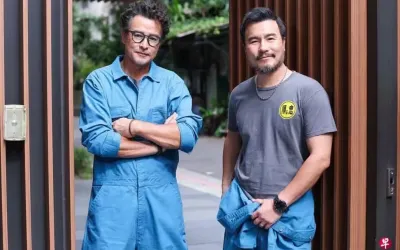2024年5月8日,新加坡通訊及新聞部高級政務部長普立傑醫生代表通訊及新聞部在國會口頭答覆議員楊益財先生和潘麗萍女士關於「數字化優先但不唯數字化」的問題。
以下內容為新加坡眼根據國會英文資料翻譯整理:
12 楊益財先生詢問通訊及新聞部部長,鑒於「數字化優先但不唯數字」的方針:
(a) 通訊及新聞部是否定期審核各部委和法定委員會提供的服務流程,以評估其數字化包容性?
(b) 通訊及新聞部在過去五年中是否收到任何關於改善特定政府機構數字化包容性的反饋?
(c) 如果有,是否已根據此類反饋採取行動?
13 潘麗萍女士詢問通訊及新聞部部長,如何才能在所有部委和政府相關機構更好地執行「並非數字化唯一」的政策,以更好地支持無法數字化的居民。
普立傑(通訊及新聞部高級政務部長,代表通訊及新聞部部長):議長先生,請允許我同時回答第 12 和第 13 個問題嗎?
議長先生:可以。
普立傑醫生:議長先生,「數字優先但不唯數字」有三個方面。首先,各機構努力使數字服務易於使用,並以數字服務標準 (DSS) 為指導。各機構設計和開發的數字服務應:(a) 可訪問且包容性;(b) 可用性;(c) 相關性。為補充各機構自身的可用性測試,政府科技局 (GovTech) 幫助確定常用服務的改進領域。GovTech 還為機構提供中央診斷工具,以檢測可用性和可訪問性等問題。各機構在更新其數字產品和服務時,會將這些問題以及公眾的反饋考慮在內。
其次,我們有意識地努力為無法自行實現數字化的公眾提供非數字替代方案。例如,中央公積金局 (CPF) 和建屋發展局 (HDB) 提供現場和聯絡中心服務,以幫助那些在網上交易有困難的人。除了這些特定機構的服務中心外,新加坡各地還有七個實體 ServiceSG 中心。這些 ServiceSG 中心將多種服務集中在一個屋檐下,簡化和提升了公民的體驗,並更好地實施了非數字化方法。ServiceSG 將繼續擴大中心網絡,優先考慮需求較高和公民(尤其是老年人)集中的地區。到2024年底,還將在兀蘭民事中心和紅山中中心增設兩個中心,以擴大對市民的服務範圍。
第三,我們堅持不懈,繼續幫助人民掌握數字技能,並跟上新的發展。例如,資媒局於2024年1月推出了「數碼技能益終身」框架(Digital Skills for Life,簡稱DSL),讓新加坡人掌握必要的知識、技能和態度,以便在數碼空間中遊刃有餘地開展日常工作,並確保上網安全。為了更好地支持老年人等弱勢群體學習基本的數字技能,新加坡政府數字辦公室還推出了 "老年人走向數字化 "(the Seniors Go Digital programme)計劃等舉措。
這些努力旨在讓所有新加坡人都能分享數字發展帶來的好處。

以下是英文質詢內容:
12 Mr Melvin Yong Yik Chye asked the Minister for Communications and Information in view of the 「digital first but not digital only」 approach (a) whether the Ministry regularly audits the service journeys provided by various Ministries and statutory boards to assess their digital inclusion; (b) whether the Ministry has received any feedback in the past five years about improving digital inclusion for specific Government agencies; and (c) if so, whether such feedback has been acted upon.
13 Ms Denise Phua Lay Peng asked the Minister for Communications and Information how can the policy of 「not digital only」 be better enforced in all Ministries and Government-linked agencies to better support residents who are not digitally able.
The Senior Minister of State for Communications and Information (Dr Janil Puthucheary) (for the Minister for Communications and Information): Mr Speaker, may I have your permission to answer Question Nos 12 and 13 together?
Mr Speaker: Yes, you do.
Dr Janil Puthucheary: Sir, there are three aspects to being "digital first but not digital only". First, agencies strive to make digital services easy to use, guided by the Digital Service Standards (DSS). Agencies design and develop digital services that are: (a) accessible and inclusive; (b) usable; and (c) relevant. To supplement agencies' own usability tests, the Government Technology Agency (GovTech) helps to identify areas of improvement for frequently used services. GovTech also provides central diagnostic tools for agencies to detect usability and accessibility issues. These, together with feedback from the public, are taken into consideration when agencies update their digital products and services.
Second, there is a conscious effort to make non-digital alternatives available to members of the public who are unable to go digital by themselves. For example, the Central Provident Fund (CPF) Board and the Housing and Development Board (HDB) provide in-person and contact centre services to assist those who have difficulty transacting online. These agency-specific service centres are complemented by seven physical ServiceSG Centres across Singapore. By housing multiple services under one roof, these ServiceSG Centres simplify and enhance citizens' experience and better implement the not-digital-only approach. ServiceSG will continue to expand the network of centres to prioritise areas with higher demand and concentrations of citizens, especially seniors. Two more centres will be established at Woodlands Civic Centre and Bukit Merah Town Central by the end of 2024 to achieve a wider outreach to citizens.
Third, we persist and continue in helping our people to pick up digital skills and keep abreast of new developments. For example, the Infocomm Media Development Authority launched the Digital Skills for Life framework in January 2024 to equip Singaporeans with the necessary knowledge, skills and attitudes to navigate the digital space, carry out daily tasks and stay safe online. To better support vulnerable groups, such as seniors, to learn basic digital skills, the SG Digital Office has also introduced initiatives, such as the Seniors Go Digital programme.
These efforts seek to enable all Singaporeans to share in the benefits of digital developments.
Mr Speaker: Mr Melvin Yong.
Mr Melvin Yong Yik Chye (Radin Mas): Sir, I thank the Senior Minister of State for his reply. Radin Mas is home to many seniors and I have often received feedback about how difficult it is for them to keep up with the new digital way of life. In fact, to our most elderly, even simple things like renewing their telephone contracts can be a frustrating experience, often having to jump through multiple digital loops and even coming to see their Member of Parliament.
I would like to ask how the Ministry of Communications and Information (MCI) intends to help seniors feel more included in our digital society beyond the Seniors Go Digital programme. At the same time, how can we also better protect our seniors as more and more of them come online, especially against scams and malware? Are there any plans to cultivate and deploy what I call "senior influencers" to better reach out to their peers, in particular, those who are still apprehensive about coming on board? In our push for digitalisation and productivity, we must ensure that our Pioneers do not feel left behind.
Dr Janil Puthucheary: Sir, I thank Mr Yong for his three supplementary questions. The short answer to all three is yes. We do want to make sure that our seniors benefit from the various efforts that we are making around digitalisation and for them to then have the opportunity to go online.
We have a number of training programmes that we have explained in this House and outside. We have the Silver Digital Ambassadors as well that we train. They are peer influencers along the lines that Mr Yong spoke about. And we have spent some time and effort trying to educate all members of the public, including seniors, about how to better protect themselves as they transact online. Maintaining that trust in online transaction is important.























